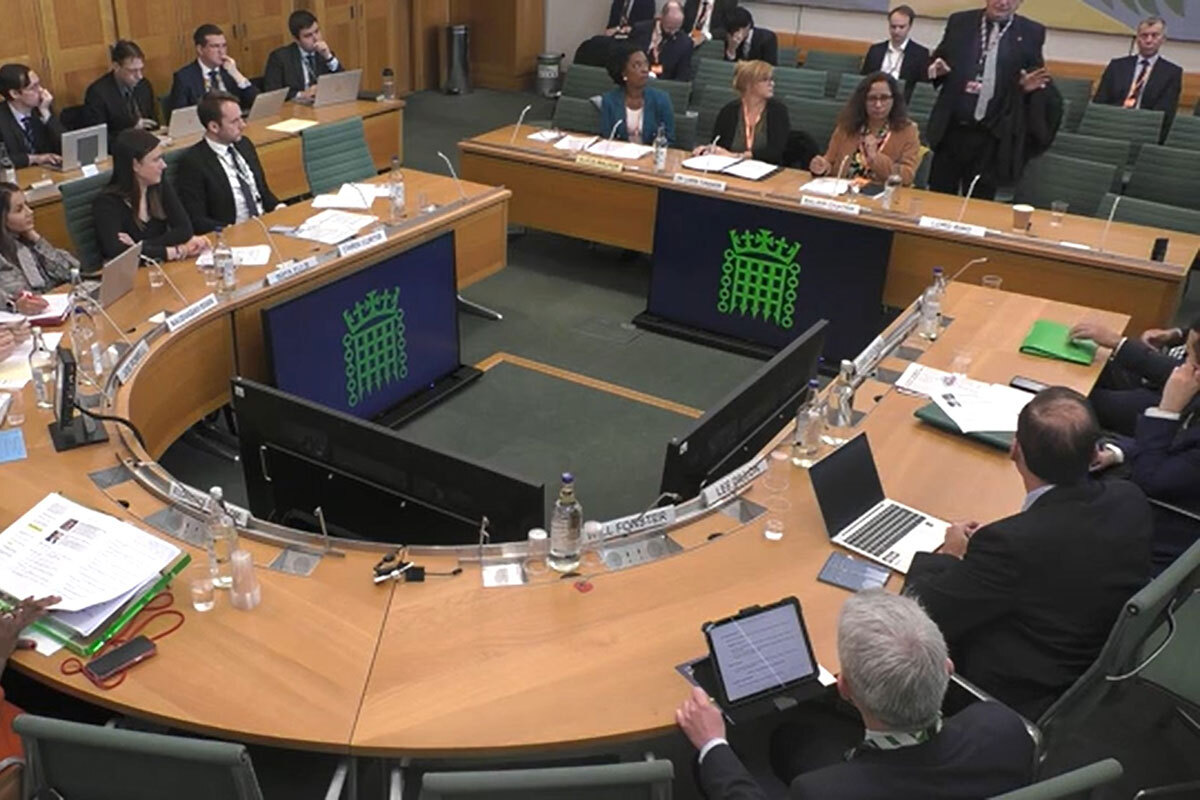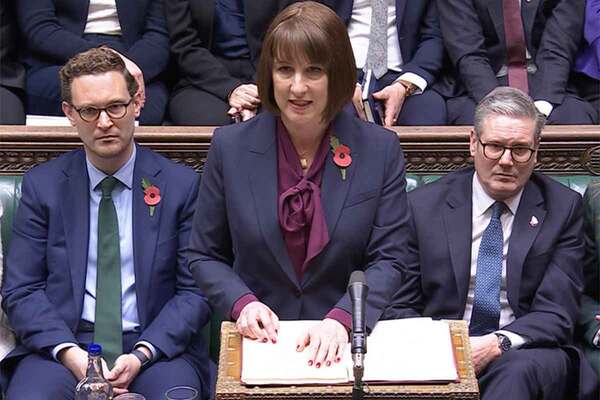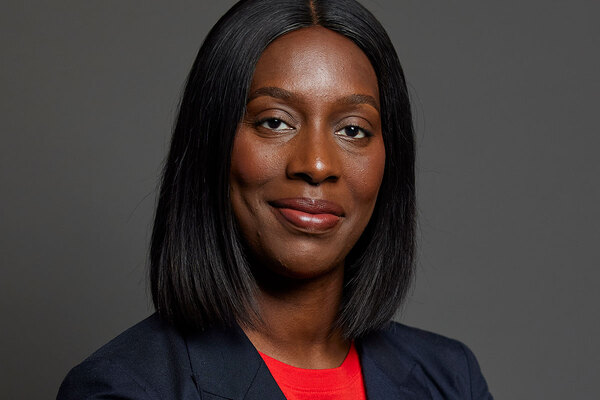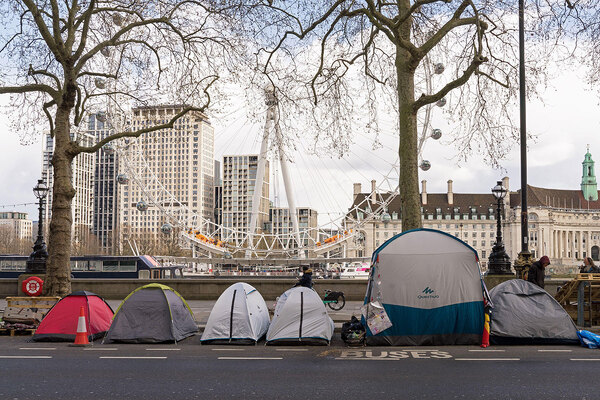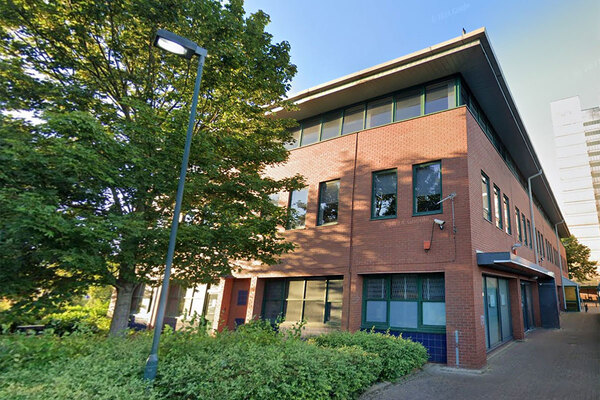You are viewing 1 of your 1 free articles
Big Issue co-founder walks out of rough sleeping inquiry over homelessness funding ‘farce’
Big Issue co-founder Lord Bird walked out of the first inquiry session on rough sleeping after telling MPs he did not want to become part of “a farce”.
On Tuesday, Lord Bird was giving evidence to the Housing, Communities and Local Government Committee’s inquiry on rough sleeping.
Around 30 minutes into the session, Lord Bird got up and said: “I’ve really appreciated coming here. I don’t want to hear this. I’ve heard this for the last 30 years.
“I’ve heard it from every government. Every government, irrespective of their political complexion. I don’t want to be a part of a farce. Until we start turning the tap off [from emergency to prevention funding], we’re screwed.”
The 78-year-old life peer, who has himself had experienced homelessness, walked out after sharing his thoughts on why rough sleeping continues to rise.
The latest government data showed that the number of people sleeping rough in London for the first time increased by 12% in the latest quarter.
In total, 4,780 people were recorded as sleeping rough, an increase of 18% on the same period. Also, 681 people were deemed to be living on the streets, 42% higher than the same figure this time last year.
Lord Bird said: “No government has addressed the issue of rough sleeping. What they’ve done is they’ve worshipped the altar of the accomplished fact, which is when somebody ends up on us [homelessness organisations], they have not put their energies and their finances into preventing those people becoming homeless.”
His point was that the government spends most of its resources on emergency funding for homelessness services, rather than putting in the upfront cost to prevention in the first place. This may include funding for local authorities, uprating Local Housing Allowance (LHA) rates and grant funding for building new social homes.
The chancellor announced £233m to tackle homelessness and rough sleeping in the Autumn Budget, but LHA rates remain frozen. This means that in London, for example, just 5% of private rental listings are affordable to low-income households.
At the inquiry session, Lord Bird was joined by Alicia Walker, assistant director of activism and advocacy at Shelter; Balbir Chatrik, director of policy and prevention at Centrepoint; and Dr Carin Tunaker, professor in law at the University of Kent.
Ms Chatrick pointed out that charity Centrepoint is doing work to mediate in schools and with families so they can stay together, but one of the big drivers of rough sleeping is “gatekeeping by local authorities” combined with a lack of temporary accommodation.
She spoke of a case of a young pregnant woman who was told by her council to come back in one month. Only on intervention by Centrepoint, she was told she could stay in a severe weather emergency centre, which was not actually suitable for someone in her condition.
Lord Bird added: “Until a committee comes along and says, ‘Let us not make the young lady that you’re talking about… Let us not allow her to fall between the cracks in society. Let’s do what [prime ministers Winston] Churchill and [Clement] Attlee did’ and that is, create the mechanisms for prevention and cure.”
Dr Tunaker agreed with all of the points that had been made during the evidence session.
She said: “One of the fundamental problems is that if somebody is rough sleeping, there is nowhere suitable for them to go. So we don’t have the mechanisms in place for people with different types of social disadvantages.
“And this is the result of what I would call a multi-system organ failure. There is not enough cross-sector working happening. There’s chronic underfunding of social care. There’s not enough affordable housing. There’s discrimination in the private rented sector, but LHA rates are not sufficient to cover rents.”
LHA rates determine the amount of housing benefit that private renters can claim. Following last month’s Budget, it was confirmed that LHA would remain at current levels until 2026 “following their increase in April 2024”.
The decision, which is the latest in a series of LHA freezes over the past decade, sparked warnings from charities including Shelter, Crisis, Homeless Link and the Joseph Rowntree Foundation that tenants will struggle to cover payments when rents rise.
It is estimated that a freeze next year will leave private renters who get housing benefits £243 worse off per year on average.
In addition to her earlier point, Dr Tunaker pointed out that people are dealing with the effects of new issues, such as Brexit and the cost of living.
“What we have is law, policy and practical solutions that are not really equipped to recognise the compounding effects of multiple forms of social disadvantage, not considering the compounding nature of being LGBTQ+, or being from an ethnic minority background, having a disability, being neurodiverse and so on. Much more needs to go in to that,” she added.
Ms Walker said no one in attendance of the session should be in a position of normalising what being in a housing emergency means.
She added: “We have all felt the escalating cost of living crisis in this country. If you put that into context, that means that rent is escalating. It means that homeownership is out of reach for many people, but also LHA hasn’t kept up with it [rising rent prices].
“It means that a lot of people can’t afford to live. On the other side, supply is a real issue. We have seen that we just do not have enough affordable social rent homes in this country. Building has not kept up with the level of demand and, therefore, until we start building and really replacing the stock that needs to be there, there’s always going to be this crisis.”
The inquiry continues as the latest development figures for London revealed that a total of 582 grant-funded affordable homes were started and 2,697 were completed in the first half of the 2024-25 financial year.
John Glenton, executive director of Riverside Care and Support, said: “It’s heartening to see the committee focusing on rough sleeping and homelessness in their opening inquiries.
“We urgently need the new deputy prime minister’s Inter-Ministerial Group on Tackling Homelessness and rough sleeping to work together and agree an invest to save approach to reduce the record numbers of people sleeping rough and the record numbers of homeless children living in temporary accommodation.
“We believe increased investment in supported housing would provide more spaces to help get more people off the streets and out of temporary accommodation into a dedicated place where they can receive the support they need to rebuild their life."
Sign up for our homelessness bulletin
Already have an account? Click here to manage your newsletters
